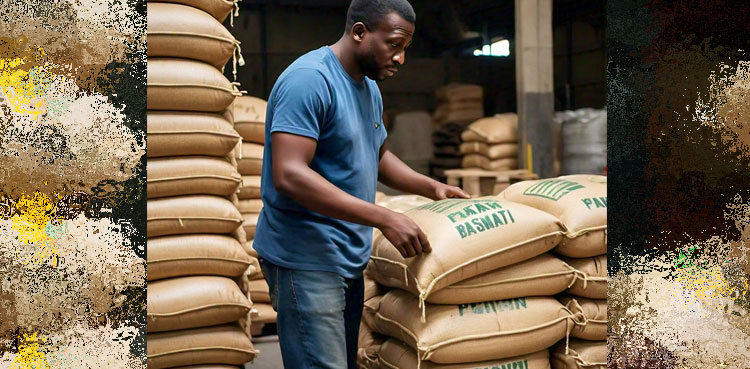Pakistan's Rice Exports: A Potential Lifeline for the Struggling Economy
- By Shahmir Kazi -
- Sep 27, 2024

Pakistan’s rice exports have emerged as a beacon of hope for the country’s struggling economy, with an approximate 78 percent surge in FY23-24. This remarkable growth has not only bolstered foreign exchange reserves but also showcased the immense potential of the agricultural sector to drive economic recovery.
Pakistan exported some 6 million metric tons of rice, valued at approximately $ 3.88 billion during FY24 as against 3.56 million metric tons were exported, worth $ 2.15 billion. Basmati rice exports alone witnessed a 35.59% increase, reaching 398,764 metric tons worth $456.950 million.

While Pakistan has made significant strides in rice exports, it faces stiff competition from its regional rival, India. India is the world’s largest exporter of rice and has a strong presence in key markets. Some exporters also suggest that the recent boom is due to the ban on exports by India. To compete effectively, Pakistan must focus on:
Quality Differentiation: Promoting the unique qualities of Pakistani rice, such as its aroma, flavor, and nutritional value, to attract discerning consumers.
Value-Added Products: Developing a wider range of value-added rice products, including parboiled rice, organic rice, and ready-to-eat meals, to cater to diverse consumer preferences.
Market Diversification: Exploring new markets beyond traditional buyers to reduce dependence on a few major importers.
Branding and Marketing: Investing in branding and marketing efforts to enhance the visibility and recognition of Pakistani rice in international markets.
Government Support for Exporters: The government can play a crucial role in supporting rice exporters and facilitating their growth. Key measures include:
Infrastructure Development: Investing in modern agricultural infrastructure, such as irrigation systems, cold storage facilities, and processing plants, to improve efficiency and reduce costs.
Trade Facilitation: Streamlining customs procedures, reducing bureaucratic hurdles, and providing timely access to export incentives to minimize delays and costs for exporters.
Research and Development: Supporting research and development initiatives to develop new rice varieties, improve cultivation techniques, and enhance product quality.
Export Promotion: Providing financial assistance, market intelligence, and training programs to help exporters expand their reach and penetrate new markets.
By implementing these strategies, Pakistan can leverage its rice exports to not only revive its economy but also secure its position as a leading player in the global rice market. The agricultural sector, once the backbone of the country’s economy, has the potential to once again drive growth and prosperity.
